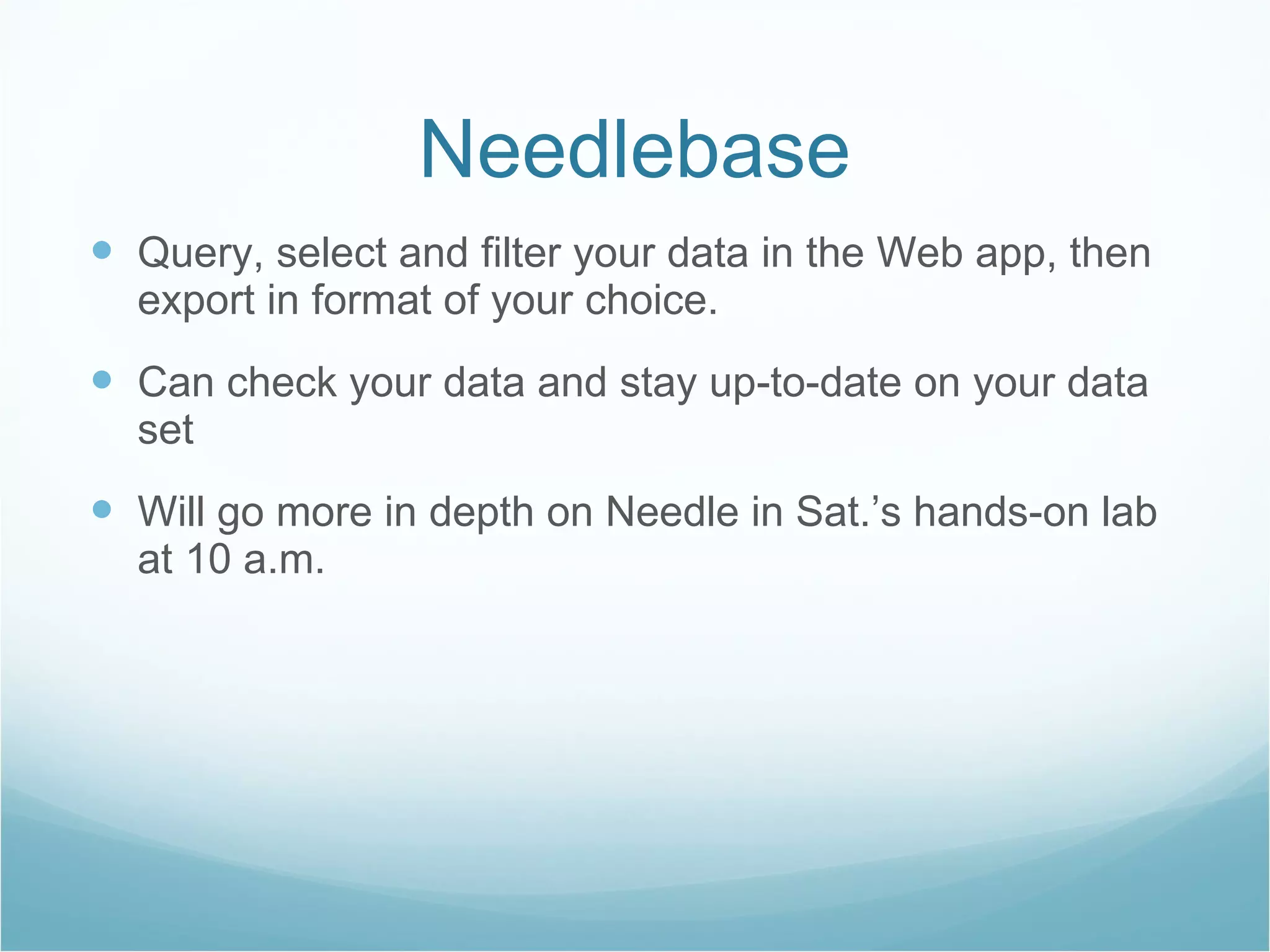The document provides an overview of web scraping, explaining it as a technique for extracting structured data from unstructured web content to help journalists gather exclusive stories. It discusses various tools and software for web scraping, including recommendations for non-programmers, emphasizing the importance of understanding legal permissions. The document concludes with the notion that the ability to extract and utilize data effectively is essential for success in modern journalism and business.




















